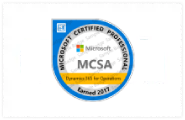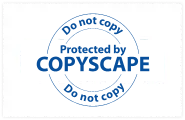There comes a moment when business owners can’t handle every problem on their own. Supply chain, accounting, risk management, and other operations necessitate high-level management and in-depth specialized knowledge. This fact stimulates the desire for new jobs and experienced employees.
However, enterprise resource planning software allows you to automate the majority of these activities while causing minimal disruption to human labor. In this article, we will discuss the concept of ERP software, the process utilized to construct it, and its benefits.
What Is the Definition of ERP Software Development?
First, enterprise resource planning must be defined (ERP). ERP software handles real-time administration of important company processes. ERP software programs collect, manage, store, and analyze data from various organizational functions. ERP software serves as a sort of go-between for all critical organizational procedures.
ERP is a sort of modular software that consolidates data from various departments into a single database. This means that employees from a certain department can access data specific to that department. ERP software professionals who oversee all corporate processes, on the other hand, have access to data from all divisions.
Advantages of ERP Software Development
Custom ERP software is difficult to construct, but the results will exceed your expectations if you engage with an experienced software development firm.
Here are a few benefits of creating ERP applications:
- Separate Modules. Using custom ERP software development, you may create modules that are customized to each department inside your company. There will not be a plethora of features and data used by other departments to perplex individuals from each department. Furthermore, process encapsulation ensures security and reduces the possibility of data leaking.
- Easy to learn. Something created exclusively for your company is easier to explain than something created for a large audience. If developers provide proper documentation, the staff training process will progress more rapidly. • Easy to maintain. You contact a support team to resolve issues with third-party software. With custom software, your developers are intimately aware of the system’s idiosyncrasies and can quickly address issues.
- Flexibility. The most significant disadvantage is that you must become accustomed to third-party programs. Despite the market’s wide range of solutions, they cannot meet all of an ERP development company’s needs. Because your business is unique, only a customized ERP development solution can meet all of your concerns. You do not need to reinvent your organization to accommodate a third-party application because ERP software development creates a solution that is specifically matched to your needs.
Drawbacks of ERP Software Development
Even while developing an ERP system is unquestionably a sensible investment, everything has a cost.
The following are the most common ERP software development stumbling blocks:
- Price. Most business owners are discouraged from developing ERP software because of this. A large project that affects the entire business is obviously expensive, and it is typically more cost-effective to continue using third-party solutions that function on a subscription basis. The economy’s long-term prospects are questionable. When you create ERP software, you pay for flexibility and simplicity of use in addition to an application. This typically leads to a reduction in operating costs.
- It’s time to grow. The cost and time required to develop an ERP solution are both identical. Software engineers are needed for business logic development, design creation, and layer-by-layer testing. However, keep in mind that you will need to spend some time teaching employees how to use third-party programs.
- Locating a partner. A technical partner is a vital last step. It can take weeks or even months to find a reliable software development partner. If you have tight deadlines, prioritize the team.
Third-party vs Custom-Made solutions
When it comes to ERP software, entrepreneurs have two options. The first alternative is to use third-party software that is sold through various subscription arrangements. The second step is to create a custom solution for the company. In this section, we discussed the merits and downsides of both tactics.
Third-Party Solutions
Numerous ERP solutions are available from software as a service provider and can be implemented immediately after the initial purchase. Turnkey solutions such as SAP Business One, Sage Intacct, and Acumatica can help small and medium-sized businesses. Simultaneously, complicated systems such as Oracle NetSuite, SAP S/4 HANA, and Microsoft Dynamics 365 are accessible to large organizations and enterprises.
Even if some of them, such as SAP S/4 HANA, allow clients to construct unique add-ons to the primary program, these systems lack flexibility. You will also require the assistance of developers due to source code alterations and API integrations.
Engineers’ detailed documentation from the development phase will aid responsible staff in resolving unforeseen problems without the involvement of outside sources. You can also hire a technical writer who will collaborate with engineers to generate comprehensive documentation for the complete system. It will expedite the training process and assist new hires in understanding the workflow.
The training difficulty trap is the most painful of all the others. Small business owners can probably figure out the program’s idiosyncrasies on their own. However, if you are in charge of a large company, the integration process could take months or even years. SAP and other software suppliers provide maintenance personnel to assist your team in mastering the program (for additional fee). As a result, think twice before investing in third-party software if you’re solely interested in the speed of integration.
In terms of benefits, choosing third-party solutions relieves you of the burden of ERP development. This means you won’t have to find an ERP software development team or select an architecture or design, for example. Everything is taken care of for you. Furthermore, you can save some resources and avoid paying for development. However, depending on the type of your organization, the ERP supplier, and the level of competency of your personnel, cost-efficiency is a dubious gain.
Customized Solutions
Third-party solutions are limited to what their designers intended, whereas personalized solutions are only limited by your imagination. Consider it a blank sheet of paper on which to draw whatever you like. Capabilities for supply chain management, specific lead analysis for the sales department, or customized features for accounting entries. Custom solutions can help you develop synergy between your divisions.
Furthermore, it may appear that third-party solutions lack basic capabilities and provide features that are superfluous for your organization. ERP software development ensures that you will receive what you need if you have properly written the feature list.
Cost and development time are the two most difficult aspects of designing ERP software. Because everything is dependent on your needs and the size of your organization, estimating the project’s cost is challenging.
What Folio3 Can Do For You?
Folio3 is skilled at developing SaaS products for both established companies and start-ups. We employ our own proprietary software, which enables accountants to produce documents automatically. To see more of our work, look through our portfolio.







